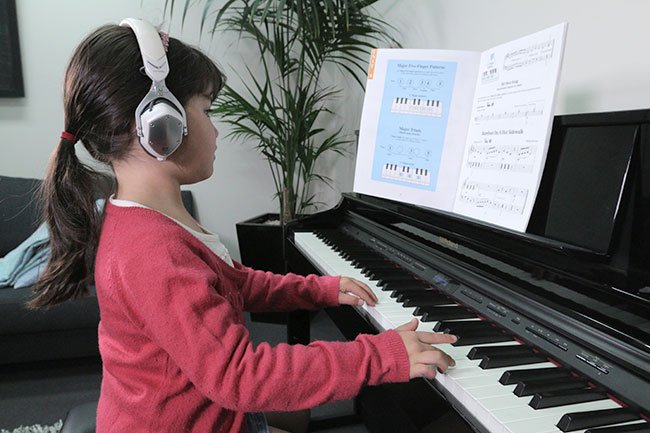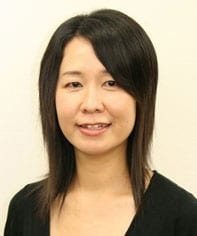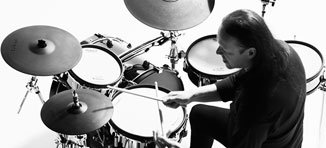In this article, we speak with Yumi Sasada on the practicalities of home practicing and parent involvement. What are the advantages of regular practice and should my child practice piano everyday?
“For young children, piano lessons will not involve things that place a huge burden on them. While we hope that children practice every day, this is not an absolute must. We think that it’s important to expose children to music in a way that’s fun.”
Contributed by Yumi Sasada for the Roland Japan Blog
How Often Should My Child Practice Piano?
One thought that comes to mind when we hear about piano lessons, is that practicing may be a challenge. Parents may be unsure if their children can practice every day, or if they can encourage their children to practice properly every day.
There are a variety of learning activities out there. Some may require daily practice and some may not. In essence however, all learning activities are about practicing regularly. The key is having your teacher provide guidance, based on the results of your practice.
We understand that children may have time constraints that make it difficult for them to practice. Many parents may have also taken piano lessons when they were young, only to quit because practicing was too hard. Ultimately, you won’t become a good player unless you practice, but none of that will matter if you do not enjoy music!
What goes on in piano lessons for very young children?
From preschool age to about their first year of kindergarten, we use the keyboard by playing the black keys with a rounded fist, or play a particular note with just one finger. This stage will typically not involve actually playing the piano.
In an earlier article, What age can my child start piano lessons?, we touched on how our lessons are based on the child’s physical and brain development. Children in this age group have not yet developed the physique needed to play the piano. So, we start out with a well-balanced mix of musical studies, to learn the basics that they will need when they begin playing.

Your child will learn notation and rhythm through activities such as singing, or singing out loud along with what the teacher is playing on the piano, or tapping out the rhythm and moving their body along to music.
The piano has 88 keys and its size was designed for adults. So the first thing we do before we get young children to play, is to familiarize them with the keyboard. We go over how the black and white keys are placed and count them out as we play them.
Keeping things playful
We also have the children hit the black keys with their fists on a sheet with a keyboard illustration. This gets them more familiar with the keyboard. This is all done in a playful way! We also do finger exercises, movements using finger puppets and other movements that help them to learn how to use all of their five fingers in a balanced way and to use their whole body.
These are just a few examples of what we do in the lessons. None of the exercises are too difficult or challenging and most are designed for your child to engage in them with the teacher, in a fun way.
When your children practice piano at home, our main focus is to encourage parents to go over the games and exercises with them. We think that this is fun to do together and reinforces everything learnt in the lessons.
We ask parents not to pressure themselves too much about making sure that their child practices. You might just gently ask your child “What did you do at your lesson today?” and sing, tap rhythms, or do finger exercises in the textbook together so that they stay in touch with music.
Learning exercise songs
For children who begin lessons for the first time in their later kindergarten or early primary school years, in addition to the exercises we describe above, we may start out by adding lessons that involve playing exercise songs or other short pieces.
At this stage, it will be easy to figure out what they need to practice. This may include practicing the songs that they learned in the lesson, or practicing new songs for the next lesson.
For these practices, parents do not need to be at their child’s side, watching them practice. Rather, we recommend that you suggest something to them like, “Let me hear it when you think you’ve got it right” and leave the room so that practicing alone becomes a habit.
Relax and have fun!
Some children may feel pressured if their parent is constantly by their side, overbearingly watching what they are doing. We think it would be better if you were to give them praise when they are playing the notes cleanly and carefully, even if their practice time is short.
Listening to what other piano teachers say at some of our meetings, it seems that the number of children who are practicing daily is coming down. While this can be a bit discouraging from the teacher’s point of view, it’s still a joy to see how children are coming to know the fun of engaging in music and continuing their lessons.

That said, practice is THE shortcut to getting better. Practicing the piano is an ongoing, step-by-step process, which involves tackling the small challenges that happen to be in front of you. We believe that it is a great benefit to have your child accustomed to this kind of practice, while they are still young.
The key is to relax and make practicing a habit, within the bounds of your child’s abilities. Since there are many musical events and live performances happening in our communities, we now have access to a wider range of opportunities to listen to live music from a variety of genres. Listening, observing and feeling the groove of musicians playing live is another important aspect of studying music.
We hope that parents will enjoy these opportunities together with their children. With a relaxed attitude it will be an enjoyable experience watching their children’s progress while practicing the piano.
About the author
 Yumi Sasada
Yumi Sasada
Graduated from the Kunitachi College of Music (Department of Music Cultures & Education, Faculty of Music Studies). Studied piano with Yoshiko Koizumi and vocal training with Emiko Akiyama. While still in school, she became a demonstrator for Roland. After graduation, she taught music at a high school, and then became teacher of classical and popular piano for junior teachers. She is currently director of the MUSIC OASIS VERDE school at her home.
In addition to giving lessons and writing on this topic, she is also actively engaged in developing preschool learning materials, course coordination, and giving instructive seminars in many parts of the country. She is also featured as a live DJ at a community FM station, and involved with program planning and production, as well as serving as navigator in musical events.
Subscribe below and receive everything you need to know about starting to play the piano.
Related Articles
THE PARENTS GUIDE FOR KIDS STARTING TO LEARN PIANO
PREPARING FOR PIANO RECITALS AND PERFORMANCES
BEST APPS FOR LEARNING PIANO
4 MOST ASKED QUESTIONS ABOUT DIGITAL PIANOS




